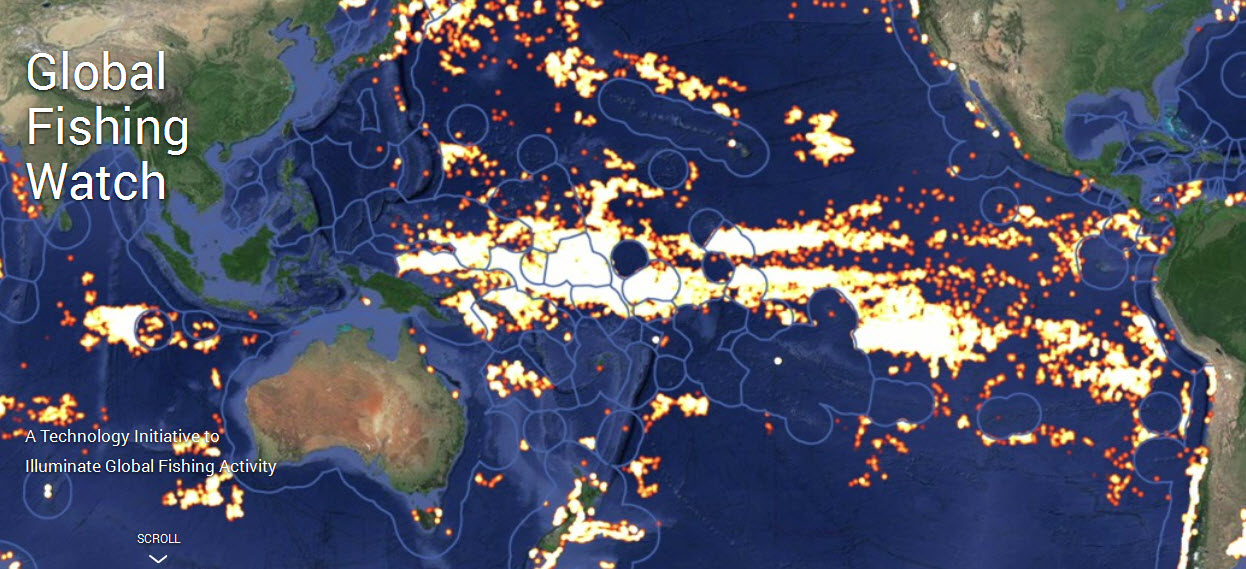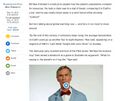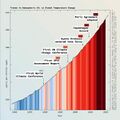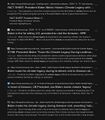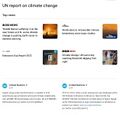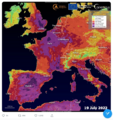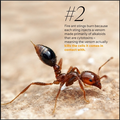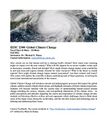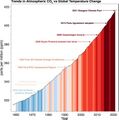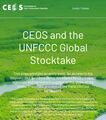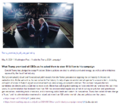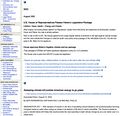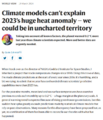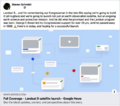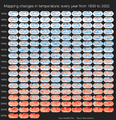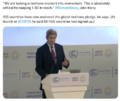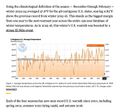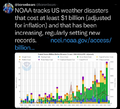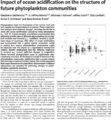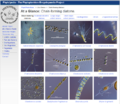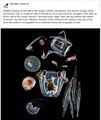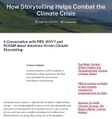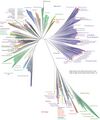Category:Fisheries
https://en.wikipedia.org/wiki/Fishery
May 2010
Pew Environment Group Urges U.N. to Correct Course
As the United Nations meets to discuss the state of high seas fisheries management, two independent, peer-reviewed studies reveal that ineffective international management is undermining the future of high seas fisheries, fish populations and the health of marine ecosystems.
One study — published online by the journal Science — finds that governments have been ineffective in stopping illegal fishing. The Pew Environment Group, which prepared this first-ever comprehensive report on the topic, reached that conclusion by evaluating government actions regarding documented vessels, known to fish illegally, that enter ports with fish from the high seas.
The second study — published online in the journal Marine Policy — is the first to evaluate 18 regional fisheries management organizations (RFMO), the intergovernmental bodies tasked with managing fishing on the high seas. The study showed that the RFMOs have failed to halt dramatic declines of fish stocks.
The Pew study focused on the role that Port States can play in combating illegal, unreported and unregulated (IUU) fishing. Port States can significantly reduce the profitability of vessels engaged in IUU fishing by denying entry, the landing of fish or port services. The study assessed how well Port States complied with measures adopted by eight RFMOs and directed against vessels found to carry out or support IUU fishing over the last six years. The analysis of port visits made by vessels showed that:
Insufficient or out-of-date data made identifying illegal vessels difficult
For those Port State governments under obligation to implement measures against illegal vessels, these obligations were fulfilled in only one out of every four cases; and Illegal vessels can avoid sanctions by escaping to another region, due to the lack of global consistency in Port State measures.
'"Our research shows that the current system leaves significant loopholes for those engaging in IUU fishing to exploit," said Kristín von Kistowski, a senior advisor to the Pew Environment Group who manages the Port State Performance research project. "To fix the worldwide problem of IUU fishing, we need a system with much more transparency, accountability and global coordination." Previous research found that IUU fishing caught an estimated 11 to 26 million tons of fish, worth as much as $23.5 billion annually and the equivalent of about one-fifth of the global reported catch.
The study in Marine Policy, from University of British Columbia researchers Sarika Cullis-Suzuki and Dr. Daniel Pauly, is the first to quantitatively score the performance of RFMOs to determine how well they manage high seas fisheries "on paper" versus "in practice." The scientists found that two-thirds of the commercial fish stocks under RFMO management are either severely depleted or overfished. Their results show that RFMOs are not meeting best practice standards and are failing to halt declines.
"We found that many RFMOs lack a general commitment to set and implement conservation measures to keep fish populations at sustainable levels," said Cullis-Suzuki. "Even if the mandate of an RFMO emphasized conserving fish stocks, the end result often did not reflect that conservation goal. We concluded that RFMOs need to be more accountable and take steps toward improving management if they want to fulfill their mandates."
_ _ _ _ _ _ _ _ _ _ _ _ _ _
Subcategories
This category has the following 3 subcategories, out of 3 total.
E
O
W
Pages in category "Fisheries"
The following 20 pages are in this category, out of 20 total.
E
L
Media in category "Fisheries"
The following 168 files are in this category, out of 168 total.
- 3M lawsuit re forever chemicals - June 2023.png 603 × 600; 357 KB
- A scorching year, what about the 360 warming data.jpg 600 × 706; 106 KB
- About Baselines and Change.png 592 × 312; 33 KB
- Algae release -nikon-small-world-competition-2017-winners.jpg 640 × 576; 89 KB
- AskNatureAvatar s.png 200 × 200; 14 KB
- Biden re Earth Day 2023.png 640 × 400; 155 KB
- Bill Nye The Planet's on Fire.jpg 800 × 675; 106 KB
- Blue-green phyto swirling 2015.png 357 × 605; 409 KB
- California's kelp forests and coastal biodiversity diminished.png 532 × 754; 307 KB
- Carl Sagan at the Emerging Issues Forum - 1990.png 360 × 460; 192 KB
- Carl Sagan at the Emerging Issues Forum.png 747 × 600; 600 KB
- Carl Sagan, the atmosphere unifies and connects all of our world.png 360 × 390; 229 KB
- Chasing Coral.jpg 800 × 437; 65 KB
- Climate Change COP27 - Nov 11 2022 US Representatives.jpg 712 × 444; 54 KB
- Climate Change COP27 - Nov 11 Kathy Castor.jpg 712 × 710; 77 KB
- Climate Conferences 1979-2020.jpg 768 × 768; 121 KB
- Climate Emergency Institute - Oct 2022.png 610 × 600; 274 KB
- Climate Legacy of Biden.jpg 600 × 687; 265 KB
- Climate News - Oct 28 2022.jpg 626 × 600; 88 KB
- Climate News Dec 4 2023 in Dubai.png 800 × 1,037; 649 KB
- Climate Plans Enforcement - Resources - GreenPolicy.png 768 × 897; 686 KB
- Climate poll - Florida.png 640 × 267; 36 KB
- ClimateNewsFlorida.jpg 448 × 191; 36 KB
- Connect with Nature.png 405 × 280; 17 KB
- COP27 'opening speech'.png 640 × 460; 160 KB
- COP28 News - Dec 13 2023.png 800 × 898; 410 KB
- CopernicusEU - Sentinel5P Atmosphere Monitoring Mission - 2.jpg 795 × 1,477; 654 KB
- CopernicusEU - Sentinel5P Atmosphere Monitoring Mission.png 583 × 465; 222 KB
- Coral bleaching Great Barrier Reef 2016.jpeg 630 × 472; 91 KB
- Coral growing-Mott Lab,Florida.jpg 800 × 382; 114 KB
- Coral reef rejuvenation-montage.png 569 × 236; 318 KB
- Cradle of Civilization - and climate change.jpg 640 × 360; 70 KB
- Cyanobacteria Prochlorococcus worldmapping MIT.jpg 473 × 321; 60 KB
- Democratic Party Climate Bill - Aug 2022.png 640 × 269; 70 KB
- Dove1 image.jpg 420 × 308; 26 KB
- DSCOVR EPIC - July 20 2022.png 532 × 612; 315 KB
- Earth AI - Feb 2022.png 482 × 480; 192 KB
- Earth Information Center - 2022 Graphic NASA.png 800 × 981; 868 KB
- Earth Information Center from NASA.jpg 800 × 577; 94 KB
- Earth Observing System - fleet of satellites.png 740 × 576; 557 KB
- Earth POV from the ISS Cupola-m.jpg 800 × 480; 71 KB
- Earth System Observatory-1.jpg 580 × 833; 129 KB
- Earth System Observatory-2.jpg 580 × 831; 69 KB
- Earth Viewing from the International Space Station.jpg 496 × 307; 45 KB
- EarthDecadel Priorities-2018.jpg 779 × 529; 85 KB
- EarthScience Missions via the EOS - 2022.png 800 × 219; 139 KB
- EO and Fire Ants in the US - on World Wildlife Day.png 768 × 811; 663 KB
- ESG Fight - Feb 2023.png 396 × 194; 88 KB
- Estuary in Clearwater on Tampa Bay.jpg 3,584 × 2,016; 1.5 MB
- Eukaryotic Cell SCU.jpg 716 × 1,024; 799 KB
- Europe heat wave - July 19 2022 - via Copernicus satellite.png 600 × 639; 704 KB
- Facts about US Energy Use.jpg 697 × 600; 101 KB
- Fire Ants.png 601 × 600; 603 KB
- Floating adaptations - GCA - for sea-level rise - circa 2023.png 600 × 732; 273 KB
- Floating Forest Project .png 773 × 461; 932 KB
- FOOD.jpg 983 × 311; 117 KB
- Fox on Earth Day 2023.jpg 640 × 275; 58 KB
- G Earth Outreach.jpg 800 × 412; 44 KB
- Global Biodiversity Information-Data.png 501 × 266; 124 KB
- Global Climate Change textbook-Edition2.jpg 604 × 680; 96 KB
- Global climate conferences and GHG increases.jpg 793 × 801; 56 KB
- Global Fishing Watch.jpg 1,246 × 569; 205 KB
- Global Stocktake, the first GST.jpg 800 × 905; 513 KB
- Great Barrier Reef dying.jpg 1,920 × 1,280; 706 KB
- Great Barrier Reef severe bleaching die-off.png 704 × 388; 630 KB
- GreenPolicy360 - May-10-2024.png 790 × 694; 320 KB
- Greta Thunberg - Week 203 Climate Strike Banner.png 209 × 127; 51 KB
- Greta Thunberg - Week 203 Climate Strike.png 554 × 601; 488 KB
- Group on Earth Observations.JPG 546 × 418; 33 KB
- Guarding Earths Water - from Space.jpg 578 × 496; 102 KB
- Historic climate-clean energy vote in US Congress August 12 2022.jpeg 800 × 775; 384 KB
- How satellites monitor climate change circa 2016.png 599 × 327; 0 bytes
- Huge heat anomaly in 2023 - by Gavin Schmidt.png 735 × 857; 172 KB
- IEA - Support for Fossil Fuels - re 2021.jpg 559 × 800; 143 KB
- INaturalist butterfly.jpg 1,024 × 683; 202 KB
- James Hansen 2024.jpg 600 × 658; 110 KB
- James Inhofe -- and Project 2025.png 640 × 670; 566 KB
- July 14, 2018 - hello down there.png 524 × 467; 290 KB
- Kelp NOAA credit Robert Schwemmer.jpg 450 × 299; 193 KB
- LANDSAT - NASA.jpg 622 × 415; 95 KB
- Landsat 9 about to launch.png 420 × 721; 355 KB
- Landsat 9 Launches - 1.jpg 600 × 693; 128 KB
- Landsat 9 Launches - 2.jpg 600 × 737; 250 KB
- Landsat memories.png 535 × 473; 159 KB
- Leah Stokes - UCSB - Prof Climate and Energy Policy.png 640 × 476; 295 KB
- Mapping changes in global temperature 1850-2022.png 656 × 680; 180 KB
- Mapping the Earth with Google Earth Outreach.jpg 640 × 648; 109 KB
- Mares Kelp 3.png 903 × 476; 869 KB
- Mares Kelp.png 903 × 476; 532 KB
- Methane cuts pledge - COP27.png 399 × 336; 164 KB
- MLT Geospace - the Edge.jpg 800 × 600; 22 KB
- Monitoring Greenhouse Gases from Satellite Missions 2021-2030.png 801 × 386; 143 KB
- NASA EPIC DSCOVR - July 6 2015.png 768 × 956; 687 KB
- NASA Launch of Landsat 9 - Sept 27, 2021.jpg 675 × 772; 131 KB
- NASA test mission to protect earth from asteroid - Nov 2021.png 508 × 800; 424 KB
- NASA's continuing vision and mission - as of 2005.png 640 × 414; 153 KB
- Nile River and Mideast.jpg 750 × 929; 87 KB
- NOAA - NCEI report on US temps 2023-2024.jpg 600 × 561; 109 KB
- NOAA extreme weather events charting.png 663 × 600; 288 KB
- NOAA report on heat records broken in US - 2023.jpg 600 × 480; 229 KB
- Ocean Acidification.jpg 616 × 252; 49 KB
- Oceans and Climate Change - DeCaprio July 2022.png 600 × 689; 677 KB
- Oceans hottest in 2022.png 800 × 501; 358 KB
- Our Fragile Moment.jpg 612 × 480; 80 KB
- Our Fragile Moment.png 301 × 448; 360 KB
- PACE - NASA Everything on Earth Is Connected.png 600 × 264; 70 KB
- PACE - NASA Jan 17 2024.png 600 × 662; 465 KB
- Phyto plankton iron ocean bio-mass fertilization experiments.jpg 709 × 353; 309 KB
- Phyto the Green Machine.png 640 × 465; 431 KB
- Phyto tinybluegreen.jpg 599 × 394; 58 KB
- Phytoplankton - the foundation of the oceanic food chain 560x396.jpg 560 × 396; 101 KB
- Phytoplankton - the foundation of the oceanic food chain m.jpg 720 × 508; 170 KB
- Phytoplankton decline NASA study Sept2015.png 1,032 × 784; 522 KB
- Phytoplankton kamchatka NASA.jpg 720 × 360; 49 KB
- Phytoplankton m.jpg 300 × 300; 37 KB
- Phytoplankton-Phytopedia 2016.png 799 × 695; 732 KB
- Phytoplankton.jpg 600 × 600; 97 KB
- Planet and plan for an Earthdata platform.png 600 × 600; 280 KB
- Planet Dove satellite image over Dubai.png 800 × 791; 1.58 MB
- Planet home page-2022.png 800 × 400; 392 KB
- Planetary-Scale Threat.jpeg 640 × 593; 101 KB
- Plankton - phytoplankton m.jpg 773 × 558; 364 KB
- Plankton Phytoplankton--'Climate Dance'.jpg 773 × 644; 161 KB
- Plankton story - New Yorker - Oct 2021.jpg 619 × 737; 125 KB
- Plankton.jpg 400 × 259; 34 KB
- Planktonbluegreen tinyones.jpg 640 × 320; 99 KB
- Planting Corals Now.jpg 800 × 365; 72 KB
- Prochlorococcus blue-green.png 501 × 273; 86 KB
- Prochlorococcus blue-green.tiny ones.png 505 × 277; 130 KB
- Prochlorococcus featured at GreenPolicy360.png 497 × 642; 42 KB
- Protect the Natural World.jpg 800 × 345; 78 KB
- Racing Extinction websiteplankton.jpg 664 × 360; 141 KB
- Rebecca Google Outreach.jpg 276 × 183; 9 KB
- Recent Satellite Imagery of Earth - via Azavea.png 600 × 747; 488 KB
- Record tumble - climate change.png 727 × 333; 27 KB
- Republican Party 2024 Climate Strategy.png 589 × 344; 44 KB
- SCOTUS decision on water protection.png 535 × 424; 299 KB
- Seagrass florida keys-noaa.jpg 700 × 267; 65 KB
- Shell lawsuit Feb 2023.png 768 × 534; 229 KB
- Shifting Baseline Syndrome - threats to ecosystems biodiversity.png 431 × 534; 322 KB
- Shifting Baselines 2.jpg 600 × 600; 140 KB
- Telling stories of solutions for the climate crisis.jpg 600 × 640; 121 KB
- Temperature - SST World via Climate Change Institute - 2023 chart.png 800 × 509; 144 KB
- Temperature World - chart via Climate Change Institute.jpg 800 × 509; 67 KB
- The Climate Dictionary - as of 2023.png 600 × 727; 200 KB
- The World Is Blue.jpg 340 × 499; 40 KB
- Thriving on Our Changing Planet.png 495 × 369; 244 KB
- Time Nov 10 2022 COP27.jpg 600 × 600; 92 KB
- Timeline-climate-change-history-485-million years.jpg 800 × 276; 42 KB
- Tiny Plankton - via The Guardian.jpg 591 × 181; 59 KB
- Tree of Life nmicrobiol201648-f1 via Nature.jpg 695 × 833; 98 KB
- Tree of Life on Hand.jpg 336 × 448; 70 KB
- Trump promise to oil ceo gathering - 1.png 440 × 108; 19 KB
- Trump promise to oil ceo gathering - 2.png 480 × 495; 291 KB
- Trump promise to oil ceo gathering - 3.png 480 × 284; 270 KB
- Trump promise to oil ceo gathering - 4.png 480 × 480; 333 KB
- Update - James Hansen July 2023 'We are fools'.png 595 × 800; 610 KB
- US Election 2024 impacts our climate legacy.png 600 × 800; 719 KB
- Who really invented the climate stripes - Climate Change Education.png 600 × 600; 234 KB
- Winning on the climate legis - AOC.png 480 × 519; 249 KB
- Zack Labe - climate viz - June 2024.png 675 × 600; 261 KB
